
Specialty Clinics
Supporting your health
needs
- INR Clinic
- IJN Quit Smoking Clinic
- Renal Denervation Clinic
- Cardiovascular Risk Reduction Clinic (CRRC)
- Heart Failure Clinic
- Respiratory
- Diabetes Lifestyle
The INR clinic serves to optimize therapeutic anticoagulation for patients who are on Warfarin.
Warfarin is prescribed to individuals who are at increased risk of developing harmful blood clots due to certain medical conditions or following procedures such as heart valve repair/replacement and Fontal/Bentall procedure. As the effects of Warfarin can vary significantly from one individual to another, careful dosage adjustment is required based on a specific blood test called INR, that checks for your response towards Warfarin.
The primary objective of our INR clinic is to provide close monitoring while you are on warfarin therapy and maintaining a balance between preventing blood clot formation and minimizing the risk of bleeding.
Kindly bring along your Warfarin Record Book each time you attend the INR clinic or a doctor’s appointment.
Location & Operating hours & Contact Number
For assistance outside normal operating hours or to speak to a doctor, please call IJN’s main line at
03-2617 8200 and request our telephonist to page for the Cardiologist on-call.
*Closed for lunch :
Mon – Thurs: 1.00-2.00pm
Friday: 12.30-2.30pm
*Closed on Saturday, Sunday & Public Holidays
Should you require assistance outside of the regular operating hours, please proceed to the Observation & Emergency (O&E) department to seek the necessary help.
If you have any inquiry related to Warfarin or INR Clinic, kindly contact the number above or email us at heart2heart@ijn.com.my with the following information:
-
- Full Name
- MRN
- NRIC or Passport Number
- Contact Number
- Remarks
[/unordered_list]
For other inquiry, please contact IJN’s main line at 03-2617 8200 for further assistance.
QUIT SMOKING CLINIC
Quit Smoking Clinic Operation Hours
| Operation Day |
Operation Hours |
| Tuesday – Thursday | 10.30am – 12.30pm 2.30pm – 4.30pm |
| Saturday | Closed |
To make an appointment, please call +603-2617 8386
Smoking is a well-known cause for a lot of diseases and can shorten lifespan by up to 16 years, yet many people find it difficult to quit smoking. Smoking contributes significantly as a risk factor towards heart and lung disease.
IJN being the premier cardiovascular and thoracic centre made it its responsibility to educate heart patients on the risks involved, complement the patients’ treatment and rehabilitation and help the smokers quit smoking. IJN started its own Quit Smoking Clinic (QSC) in February 2008.
Clinics are conducted by experienced senior nursing professionals from the Patient Counselling Department and Heart Failure Unit of the Cardiology Department. Clients include those referred by doctors or those who themselves are keen to quit smoking and needed assistance to do so.
The aim of the Clinic is to create awareness on the negative effects of smoking and helping smokers deal with all aspects of their addiction to nicotine. Nicotine dependence is the reason why clients’ are unable to quit even when they want to. Nicotine is highly addictive and it can be very difficult to quit smoking, especially without help.
Clients in the quit smoking programme are evaluated on a case by case basis depending on various factors including their medical condition and their level of desire to quit. Apart from providing counselling and motivation, the experienced nursing professionals assess the lifestyle of the clients and provide information on types of treatment and medication available the form of Nicotine and Non-Nicotine replacement therapy. Carbon monoxide analysis is carried out and the appropriate treatment is recommended.

In line with this, IJN had taken a step forward to start its own Quit Smoking Support Group. The group would meet once every 2 months, when new clients and a number of successful ‘quitters’ are invited for the sessions. At the first session held on March 2011, fellow participants and successful quitters shared their experiences and motivate each other to succeed. When they find it a struggle to give up smoking and felt like quitting the program, it becomes more meaningful when they see people in the same situation who has successfully quit the habit. This acts as a motivation as well as a challenge to them.
Each year the Clinic holds a public forum on quit smoking during which successful quitters referred to as ‘Graduates’ are presented with certificates of achievement.
The Quit Smoking Clinic also undertakes outreach programmes especially when requested by the public and private sector organisations who wish to promote quit smoking amongst their staff or members. Personnel from the Clinic also participates in IJN’s Corporate Social Initiatives CSI programmes in various parts of the country when the Quit Smoking group educates the general public on the risks associated with smoking and how they can quit the habit.
RENAL DENERVATION CLINIC
Renal Denervation Screening Clinic
Institut Jantung Negara Kuala Lumpur offers a catheter based renal sympathetic denervation solution for suitable patients with resistant hypertension. On 14th September 2011, Institut Jantung Negara became the first centre in Asia to perform a new technique of treating patients with Resistant Hypertension. The procedure is bilateral renal artery denervation using the Symplicity® Catheter system (Ardian).
Resistant hypertension
High blood pressure or Hypertension is a common disorder and affect at least 30 to 40% of the adult population in the developed world. Most patients who suffer from hypertension do not have any symptoms. However many studies have shown higher blood pressure is associated with increased risk of ischaemic heart disease and stroke. A study by MOH, J.p et al showed that lowering blood pressure by as little as 5mmHg can reduce the risk of stroke by almost 30%. However in some instances, Blood Pressure remains above target goals despite intensive therapy. While these patients are considered as uncontrolled hypertension due to various reasons like non-compliance to medications, White-coat hypertension or pseudohypertension, there are those that are truly resistant to treatment.
The science behind renal denervation
Resistant hypertension is defined as systolic blood pressure of more than 160 mmHg (more than 150mmHg for the diabetic patient) despite being on 3 or more antihypertensive medications. The pathophysiology of hypertension is complex and not fully understood. But what we do know is that the renal sympathetic nerve that innervates the wall of the renal artery is important in the pathology of hypertension. It regulates the sodium retention, stimulation of the renin release and reduction of the renal blood flow. The hyperactivation of these factors lead to hypertension. Studies have shown that inhibiting the sympathetic nerve via surgical means will lower the blood pressure. The SYMPLICITY HYPERTENSION TRIAL has shown that renal denervation is a safe procedure that causes blood pressure reduction in patients with resistant hypertension. A device-based, percutaneous approach of selectively denervating the renal sympathetic nerves using Radiofrequency Ablation, the Symplicity® Catheter system was developed by Ardian for this very reason (Picture 1, courtesy of Ardian Medtronic).
The Simplicity Catheter
Radiofrequency generator
Source: Ardian Medtronic
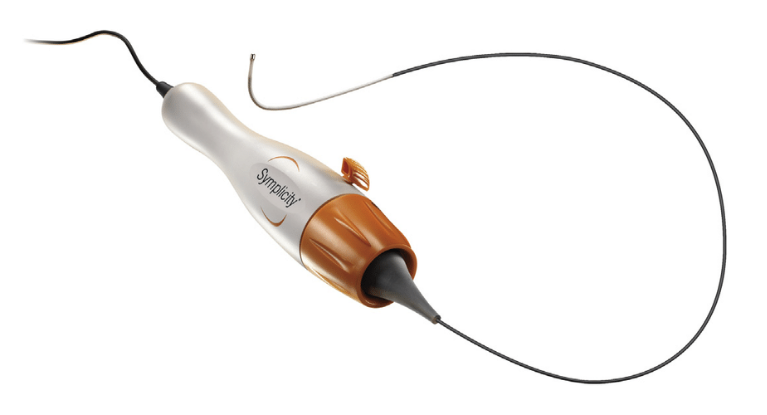
CARDIOVASCULAR RISK REDUCTION CLINIC (CRRC)
The Cardiovascular Risk Reduction Clinic (CRRC) is a specialized clinic dedicated to enhancing the management of atherosclerotic cardiovascular disease (ASCVD) by utilizing a multidisciplinary approach from various medical fields. Our primary goal is to optimize cardiovascular health by addressing risk factors such as diabetes, lipid disorders, hypertension, and obesity, ultimately preventing cardiovascular events and improving patients’ well-being.
- Diabetes Lifestyle Clinic
- Lipid Clinic
- Obesity Clinic (Coming Soon)
- Hypertension Clinic (Coming Soon)
[/unordered_list]
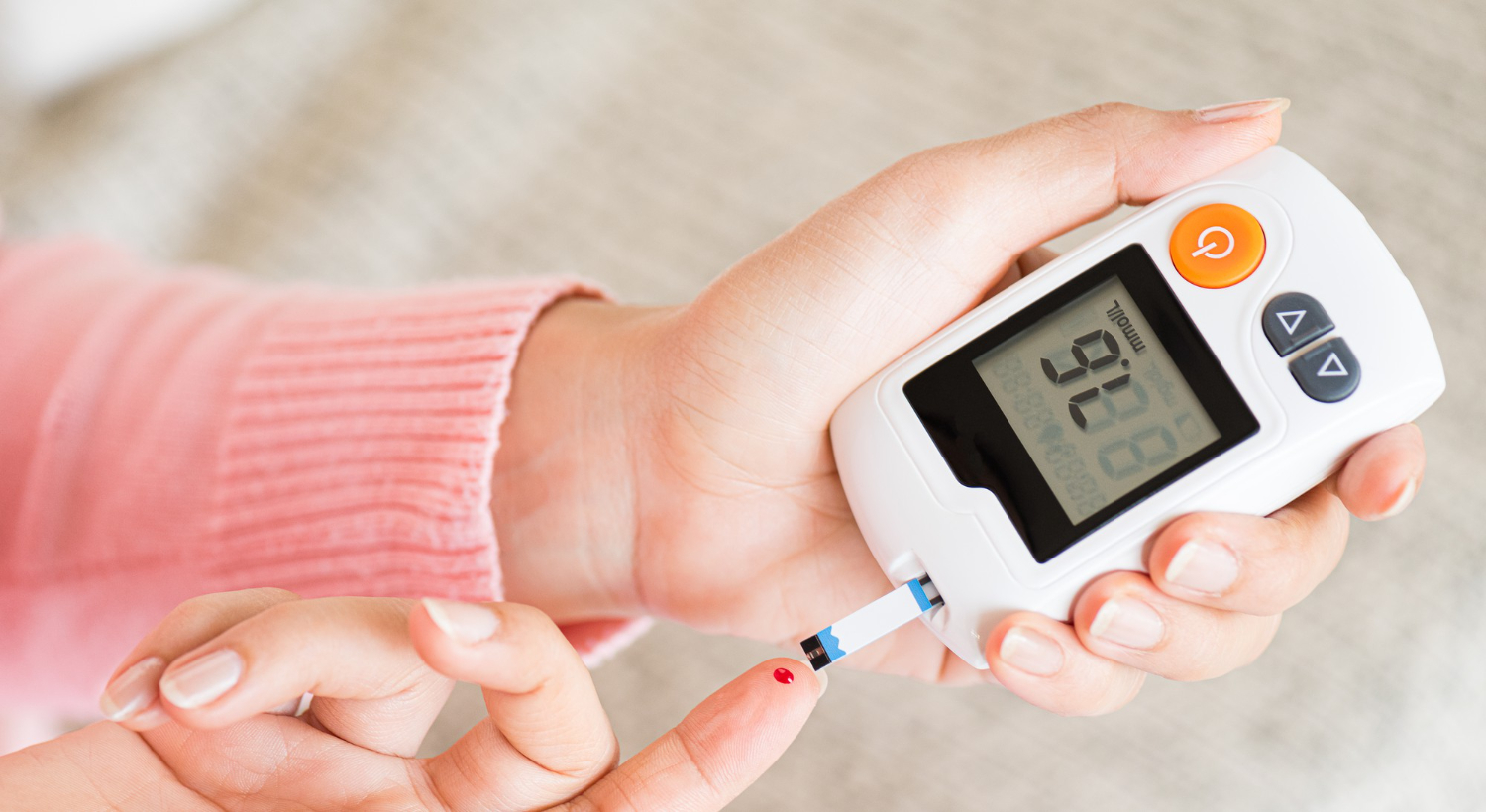
Diabetes Lifestyle Clinic
The challenge of diabetes self-care, whether recently diagnosed or a long-term patient, involves various factors like diet, exercise, medication, and blood glucose monitoring. IJN offers support through a diabetes care team, including diabetes educators who aid in comprehending the condition and adopting healthier habits to mitigate complications and enhance overall health.
- Diabetes Education
- Diabetic foot assessment
- Continuous Glucose Monitoring (CGM)
[/unordered_list]
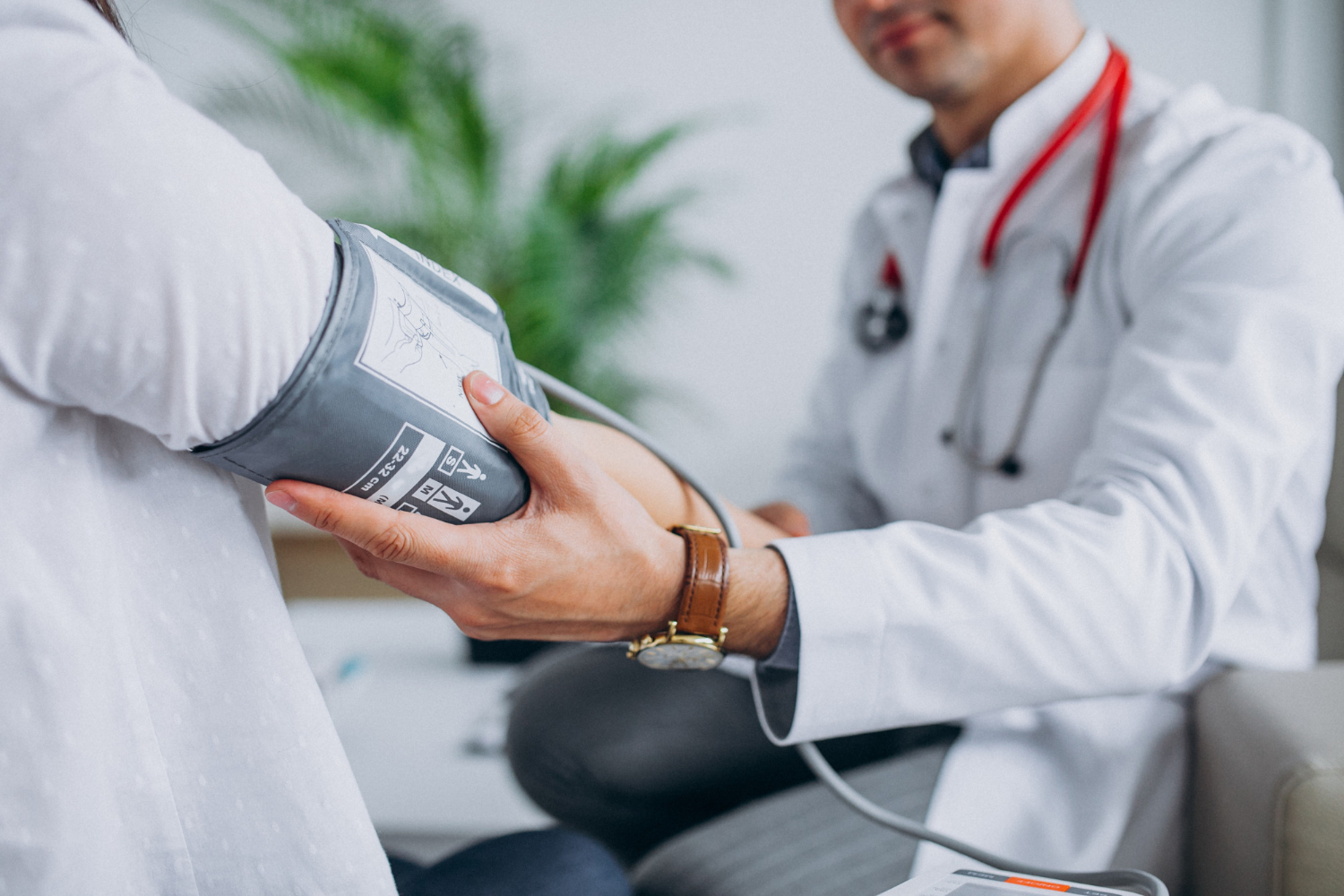
Lipid Clinic
Lipid clinics focus on cholesterol-related issues, notably elevated cholesterol and triglyceride levels that increase cardiovascular risks. Our experienced multidisciplinary team offers personalized treatment strategies, lifestyle support, and medications to mitigate the potential for heart-related complications.
Cardiovascular Risk Reduction Clinic (CRRC)
| Operation Day |
Operation Hours |
| Tuesday – Thursday | 8.30am to 4.30pm |
| Saturday, Sunday and Public Holidays | Closed |
HEART FAILURE CLINIC
Heart Failure
Heart failure means the heart does not pump as well as it should during each heart beat. As a result, the heart cannot pump enough blood to meet the body’s needs.
How common is Heart Failure?
Heart failure becomes more common with increasing age. About 1 in 15 people aged 65-74 years have heart failure. This increases to about 1 in 15 of people aged 75-84 years, and to just over 1 in 7 people aged 85 years and above. It is uncommon in younger people.
Signs and symptom of Heart Failure
- Shortness of breath (dyspnea) on exertion, and sometimes when lying down.
- Reduced ability to exercise.
- Persistent cough or wheezing with white or pink blood-tinge phlegm.
- Swelling (edema) in legs, ankles, and feet.
- Swelling of the abdomen (ascites).
- Sudden weight gain from fluid retention.
- Lack of appetite and nausea.
- Irregular or rapid heartbeat.
[/unordered_list]
What are the causes of Heart Failure?
Coronary artery disease is the most common cause. In this condition the blood flow to the heart muscle is reduced by narrowing of the coronary arteries that supply the heart muscle with blood and oxygen. The heart muscle may then not function as well as normal. Heart failure may develop after a heart attack (myocardial infarction), A heart attack is due to sudden blockage of a coronary artery that results in damage to part of the heart muscle.
Following a heart attack, scar tissue forms in the effected part of the heart muscle, the bigger area the heart attack, the bigger the damage and scarring, and the more likely the function of the heart is affected leading to heart failure.
- Disease of the heart muscle (cardiomyopathy)
- Uncontrolled high blood pressure
- Severe arrythmias
- Drugs or chemicals that may damage the heart muscle e.g. alcohol excess, cocaine and some type of chemotherapy
- Congenital heart defects
- Viruses
- Diabetes
[/unordered_list]
Can Heart Failure be prevented?
Good blood pressure control is important if a person has high blood pressure. Prevent the development of coronary artery disease and heart attacks by controlling cholesterol levels and avoiding smoking. In patients with coronary artery disease, appropriate treatment can reduce the risk of heart attacks.
If heart attacks occur, early treatment can limit muscle damage and various medications after a heart attack can reduce the development of heart failure.
What is the aim of management for Heart Failure?
- Preventing worsening of Heart Failure.
- Reducing symptoms & hospitalisation due to heart failure and improving the quality of life.
- Improving the survival of patients with heart failure.
[/unordered_list]
What is the outlook (prognosis)
In general, the more severe the heart failure, the worse is the outlook. In many cases the symptoms remain stable for quite sometime (months or years) before deteriorating. In some cases the deterioration is more rapid and eventually leads to death.
Heart failure is a chronic disease needing lifelong management. However with treatment, a failing heart can improve and patients can feel better and live longer.
What is the aim of management for Heart Failure?
-
- Diet –
If the patient is overweight, he should try to lose weight to reduce the extra burden on his heart. - No Smoking –
The chemicals in tobacco cause blood vessel to narrow (constrict) which can make heart failure worse. Smoking is also likely to make coronary artery disease worse. - Exercise –
For most people with heart failure, regular exercise is advised. The fitter a person, the better he will feel. The level of exercise each person can do will vary, Before a patient starts to increase his exercise, he should seek advice from his doctor as to the degree of exercise he can do. - Monitor his weight regularly –
This will let a patient know if he is retaining fluid particularly if there is a weight gain of more than 2kg over 1-3 days. - No alcohol –
Do not drink too much or do not drink any alcohol at all.
- Diet –
[/unordered_list]
[unordered_list style=”circle” animate=”no”]Other treatment for underlying condition may be advised, for example:
- Treatment to lower blood pressure, if a patient has a high blood pressure.
- Treatment to slow down the progression of coronary artery disease if this the cause of the heart failure, for example lowering a high cholesterol level.
- Coronary artery bypass may be an option in some cases of coronary artery disease.
- Surgery to replace or fix a heart valve, if a damaged heart valve is the cause of the heart failure.
- Heart transplant is an option in some cases with severe heart failure, not responding to the usual treatments.
[/unordered_list]
Change your bad habits and live a healthier and happier life with your family. Love Your Heart. Lead a Healthy Lifestyle.
DIABETES LIFESTYLE CLINIC
Keeping your diabetes in check can seem daunting with all the tasks you have to stay on top of – from making lifestyle changes, to monitoring your blood glucose levels and taking your medications. But you don’t have to do this alone. Here at IJN, you can get the support you need to manage your diabetes. Our trained diabetes care team will give you the information and guidance you need to effectively cope with the condition.
Diabetes Lifestyle Services
Diabetes Education
RM50 per Consultation
Our diabetes educators are dedicated to helping you easily manage your diabetes.
They will work you to develop a plan to stay healthy, giving you the tools and ongoing support you need throughout this process. With this, you can lower your risk of developing diabetes-related complications and improve your overall health.
Diabetes self-care management consists of several components;
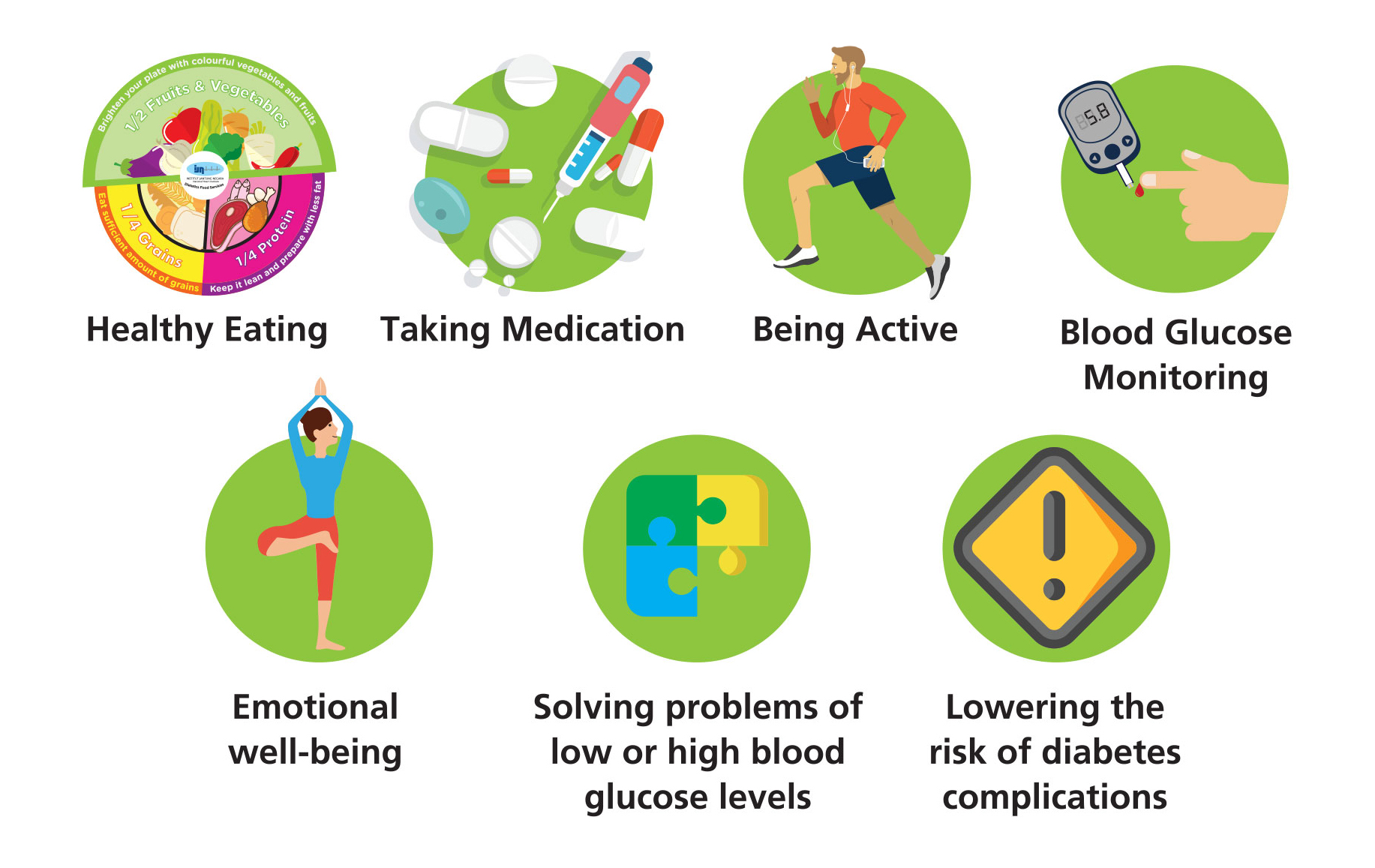
Diabetes Foot Assessment
RM85 per assessment
Diabetes may be harmful to your feet in several ways, causing complications such as:
- Nerve damage – numbness, burning sensation in the feet
- Poor blood circulation – pain in leg muscles when walking
- Foot infections – foot ulcers, blisters, or calluses
Consult your doctor if you experience any of the symptoms above. it is also advised to get your feet checked at least once a year.
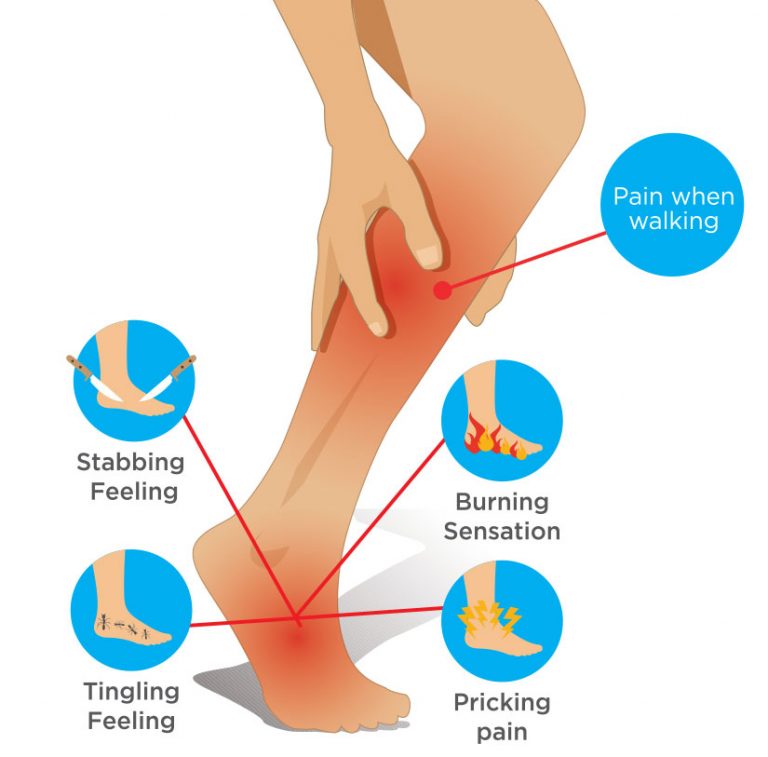
Continuous Glucose Monitoring (CGM)
RM550 per CGM package
CGM is a tool to continuously measures your blood glucose levels over a 7-day period. This gives you and your doctor a better understanding of your blood glucose patterns. From there, we can help you make the appropriate lifestyle and medication adjustments. If you are struggling to keep your diabetes in control, CGM could be eight choice for you
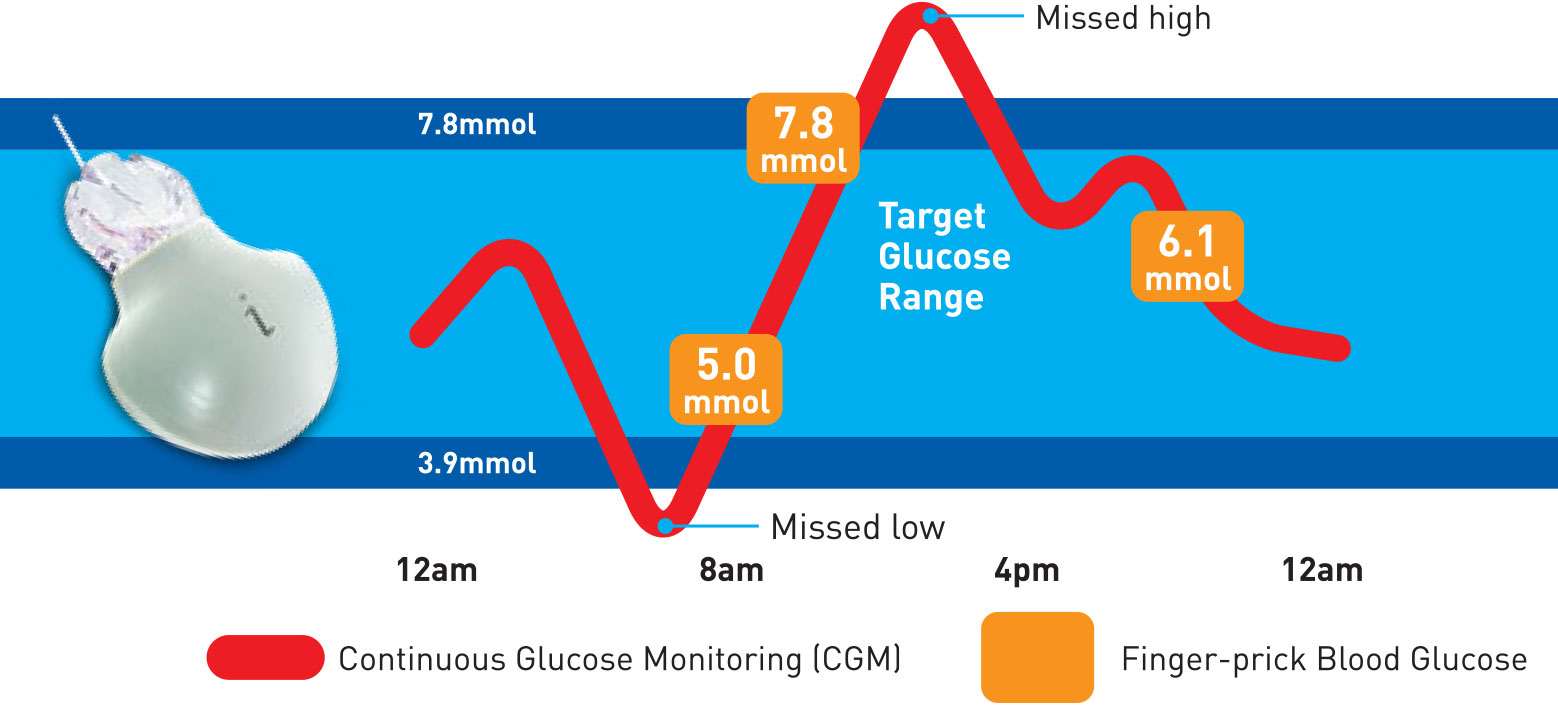
Diabetes Lifestyle Clinic
Taking good care of yourself can seem daunting when you have diabetes; whether you’ve just learned you have the disease or you’ve had it for a long time. In managing diabetes condition, there’s a lot to consider, from eating healthy meals to exercising, monitoring your blood glucose and taking your medications. But with the right diabetes care team and support in IJN, we can make your diabetes self-care manageable in your everyday life.
Find a Diabetes Educator
Diabetes educators are healthcare professionals who focus on helping people with diabetes to understand their disease, adjusting their lifestyle and behavior, so that they can have the skills to successfully manage their diabetes at home. Diabetes educators apply in-depth knowledge and skills in the biological and social sciences, communication, counseling, and education, which, in turn, lowered risk for diabetes complications and improved health status.
Diabetes Lifestyle Clinic
| Operation Day |
Operation Hours |
| Tuesday – Thursday | 8.30am to 5.00pm |
| Saturday | Closed |
